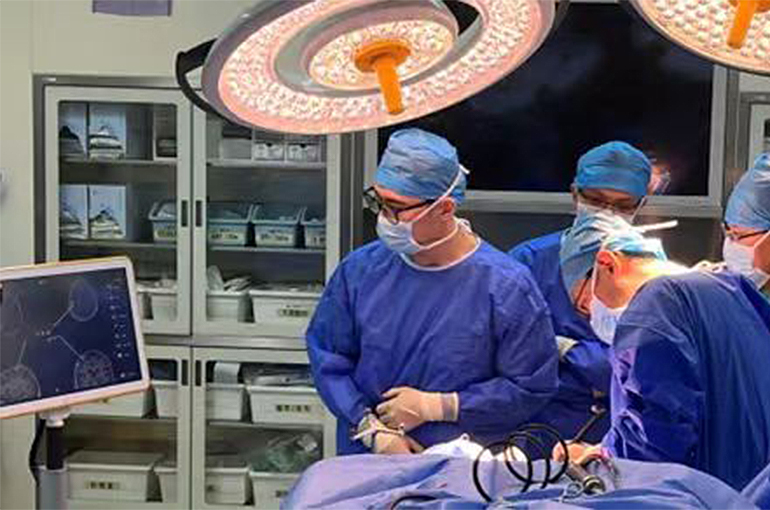 Chinese BCI Breakthrough Helps Paralyzed Patient Drink Water by Himself
Chinese BCI Breakthrough Helps Paralyzed Patient Drink Water by Himself(Yicai) Jan. 31 -- A paralyzed patient who accepted brain-computer interface surgery can now drink water on his own, a Chinese research team has announced.
Teams led by Prof. Zhao Guoguang at Xuanwu Hospital, Capital Medical University and Prof. Hong Bo at the School of Medicine, Tsinghua University jointly completed the BCI surgery last October, implanting chips in the patient’s skull, Xuanwu Hospital said on WeChat yesterday.
The patient is a 54-year-old male who suffered a severe spinal cord injury in a car accident, becoming quadriplegic as a result.
After three months of rehabilitation at home following the breakthrough surgery, the patient can now control a mechanical glove thanks to two coin-sized chips implanted in his skull that can produce brain-controlled actions. These include drinking water, with a grasping accuracy of over 90 percent, the announcement said.
Elon Musk’s company Neuralink made headlines early last year after implanting its first brain chip into a human patient. The initial results were promising, Musk, who is also chief executive of electric vehicle giant Tesla, said on Jan. 29, drawing public attention to BCI technology.
Unlike the process used by Neuralink, the Chinese team implanted the chips into the patient’s skull, rather than the cerebral cortex, ensuring signal quality within the skull while avoiding damage to neural tissue, according to Xuanwu Hospital.
China completed the first human trial of BCI surgery in 2020. The trial at Zhejiang University helped a paralyzed patient regain motor ability.
The market for global BCI medical applications could reach USD145 billion by 2040, consultancy McKinsey said in a report. The market for using the technology to treat major diseases could reach USD85 billion, it added, while for consumer-level applications with a primary focus on emotion assessment and intervention, the market could be worth USD60 billion.
Editors: Dou Shicong, Tom Litting